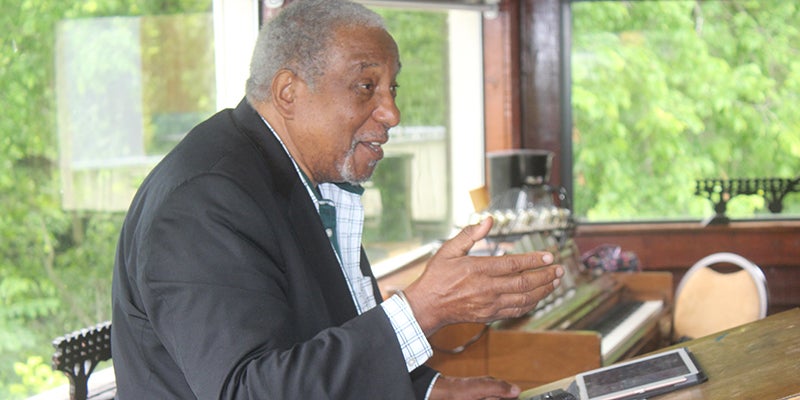Voting rights history tour makes stop in Selma
Published 11:27 am Tuesday, May 14, 2019
In a non-partisan tour, Alabama Secretary of State John Merrill and other different state leaders visited the Selma Center for Nonviolence, Truth and Reconciliation (SCNTR) on Saturday as part of their voting rights history tour through parts of Alabama.
Joining Merrill and Michigan Secretary of State Jocelyn Benson were 18 other secretaries of state-eight Democrats and 12 Republicans – who all traveled through Birmingham, Montgomery and Selma to learn about the fight for voting rights in Alabama.
While at the SCNTR, SCNTR Director Ainka Jackson welcomed the secretaries to the center.
“I know that you all woke up with your mind set on freedom because you all came to Selma,” said Jackson. “The center was founded in 2015,” said Jackson adding the founding of the center also was the celebration of the 50th anniversary of Bloody Sunday. “That was a different kind of bloody Sunday. We had two murders that Sunday and two more within a month in a town that is less than 20,000 people. In 2014, we were the poorest county in the state. In 2015, we were the most dangerous place to live in Alabama and in 2016, we were the eighth most dangerous place per capita in the country. That should not be. We believe that broken relationships are all in need of healing. We are partnering with communities to heal relationships and economies.”
Jackson then talked about Dr. Bernard LaFayette, who was the speaker for the lunch meeting.
“Dr. King appointed him to be over the Poor People’s Campaign,” said Jackson. “We often don’t think about poverty as being a form of violence. During our first board meeting, Dr. LaFayette said there is unfinished business of the Civil Rights Movement and that we needed a Selma two. So, we came up with Selma 2.0 and we are so excited that you are all here with us.”
“I am all about passing the torch,” said LaFayette. “We do extensive training in nonviolence. We have a program that is outlined and based off of Dr. Martin Luther King’s principles and what he taught. It is important to know that the change that has taken place in many places around the world is based on the teachings of Martin Luther King. We trained about 40,000 Nigerians about two years ago. The Muslims in the north that Nigeria was going to invade had run all of the other ones out of the north. They called us and we told them that we were going to have to bring leaders together. The leaders are not the only ones part of the conflict. Their allies and supporters are as well. We must understand everyone in the system if we are going to bring about those changes. Many times, we have silent partners in crime. The point is if we don’t get the silent partners then we are not going to solve the problem. We go about it, but we are not about to solve it.”
LaFayette also shared about his time working with King adding his appointment to run the Poor People’s Campaign.
LaFayette talked about how he thought voter registration was very important.
“I thought it was so important,” he said. “You have these masses of people participating and helping to be one of the branches of government. You have to be inclusive. That is the only way.”
“This is a unique opportunity to bring a nationwide group of state chief election officers together to learn about both our sobering history and promising future here in Alabama and, by extension, the country,” Merrill said. “Together this group of leaders is responsible for administering elections in 20 states across the country,” Benson said. “I hope this nonpartisan tour inspires us to come together while we learn about the hard-won struggle for voting rights that continues to impact our work in elections every day.”






